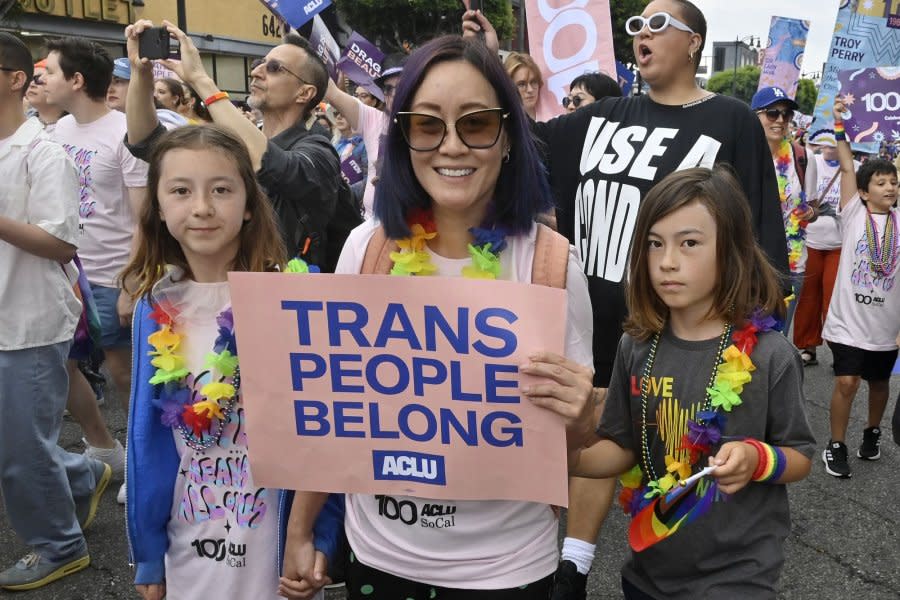Supreme Court allows Idaho to enforce ban on gender-affirming care for teens

- Oops!Something went wrong.Please try again later.
April 15 (UPI) -- Idaho will be allowed to widely enforce a law banning gender-affirming healthcare for transgender teens even as a legal challenge against it continues, a divided Supreme Court ruled Monday.
In a 6-3 opinion falling along conservative-liberal lines, a high court majority ruled in favor of Republican Idaho Attorney General Raul Labrador, who had sought to allow enforcement of the law statewide with the exception of the two teenage plaintiffs who are challenging it in federal court.
The law had been hold since December under an injunction issued by U.S. District Court Judge Lynn, who paused its enforcement as attorneys for the two teen plaintiffs, identified only as Pam Poe and Jane Doe, continue their efforts to overturn the measure as unconstitutional at the San Francisco-based 9th U.S. Circuit Court of Appeals.
The appellate court has yet to rule, but in the meantime, Idaho may go ahead and enforce the measure across the state, the Supreme Court decided. after Labrador sought an emergency ruling by the high court.
"Ordinarily, injunctions like these may go no further than necessary to provide interim relief to the parties. In this case, however, the district court went much further, prohibiting a State from enforcing any aspect of its duly enacted law against anyone," Justice Neal Gorsuch wrote in the majority opinion.
"Today, the court stays the district court's injunction to the extent it applies to nonparties, which is to say to the extent it provides 'universal' relief. That is a welcome development," he added.
Justices Ketanji Brown Jackson Jackson and Sonia Sotomayor, meanwhile, penned a dissenting opinion in which they said the state had failed to meet its burden in proving the injunction is causing harm and has, in fact, issued a "troubling bid" for early high court intervention.
"This court is not compelled to rise and respond every time an applicant rushes to us with an alleged emergency, and it is especially important for us to refrain from doing so in novel, highly charged, and unsettled circumstances," they wrote.
Idaho's 2023 law, HB 71, was signed by Gov. Brad Little on April 5, 2023. The bill criminalizes the administration of puberty blockers, hormone therapy and certain surgeries for transgender teens under the penalty of felony charges and up to 10 years in prison.
"In signing this bill, I recognize our society plays a role in protecting minors from surgeries or treatments that can irreversibly damage their healthy bodies," Little said in a letter as Idaho joined 19 other Republican-led states since June 2022 in passing laws or policies limiting minors' access to gender affirming care, according to the nonprofit Kaiser Family Foundation.
The American Civil Liberties Union argued in court that HB 71 prohibits "widely accepted treatments for gender dysphoria, despite their endorsement by leading medical organizations like the American Medical Association."
"While the court's ruling today importantly does not touch upon the constitutionality of this law, it is nonetheless an awful result for transgender youth and their families across the state," the ACLU said in a statement.
"Today's ruling allows the state to shut down the care that thousands of families rely on while sowing further confusion and disruption. Nonetheless, today's result only leaves us all the more determined to defeat this law in the courts entirely, making Idaho a safer state to raise every family," it added.

